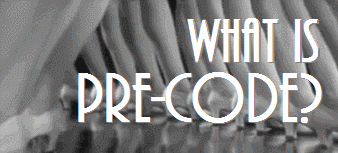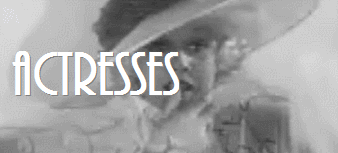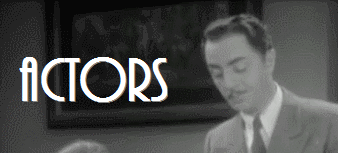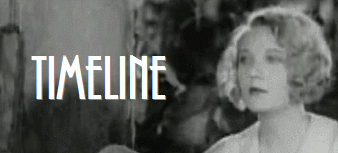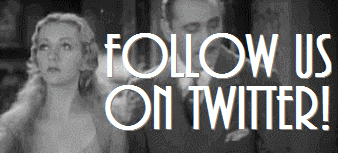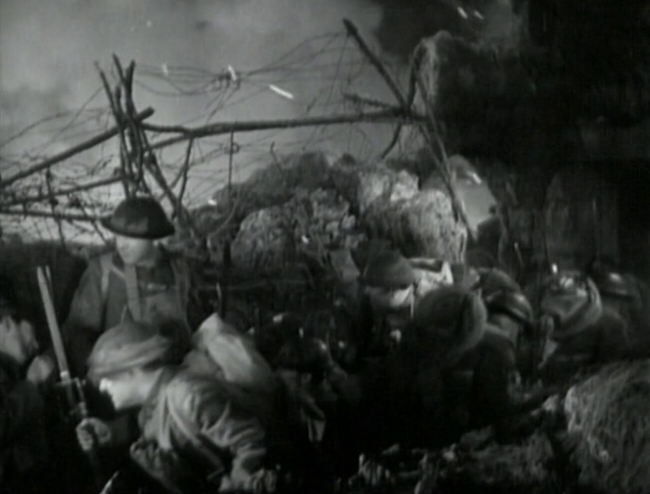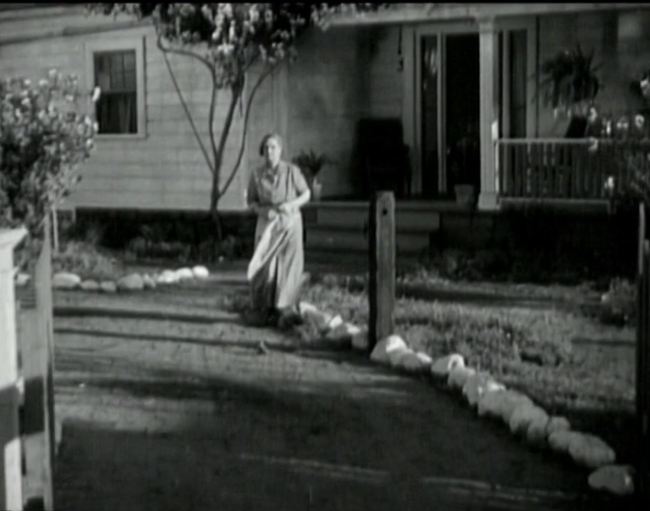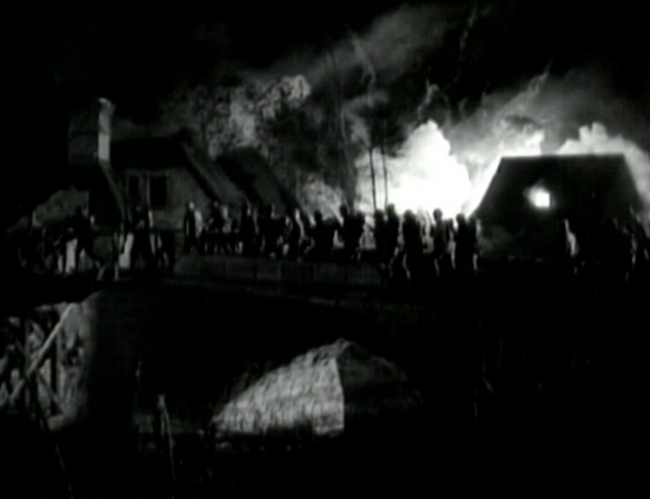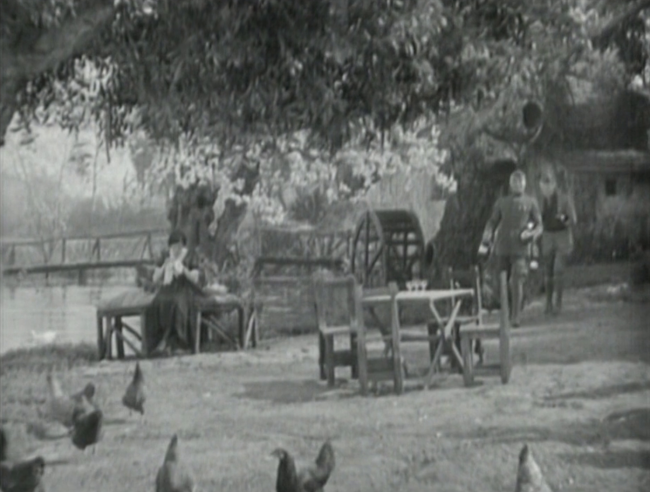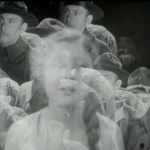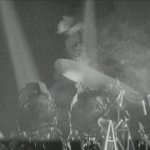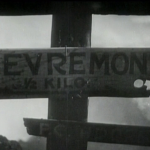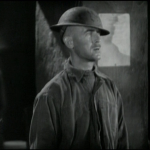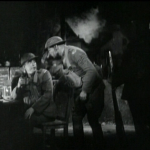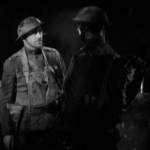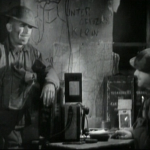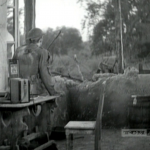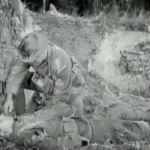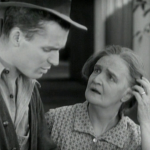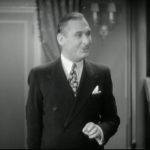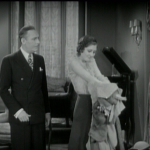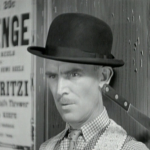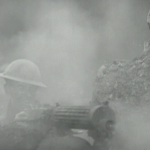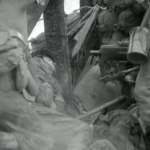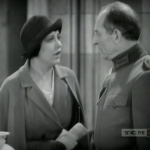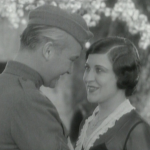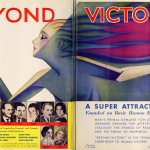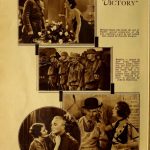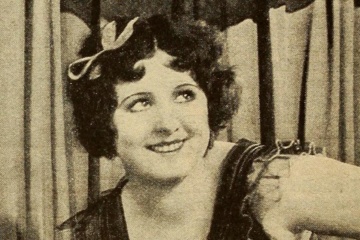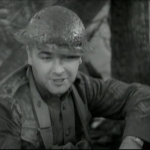 |
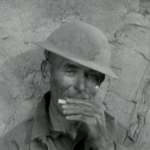 |
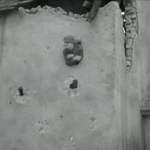 |
| Bill William Boyd |
Jim James Gleason |
Bud Russell Gleason |
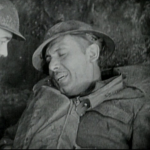 |
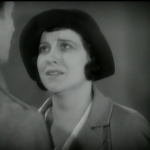 |
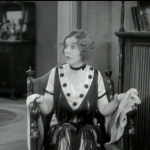 |
| Lew Lew Cody |
Katherina Lissy Arna |
Fritzi Zasu Pitts |
| Released by Pathe | Directed by John S. Robertson Run time: 70 minutes |
||
Proof That It’s a Pre-Code Film
- “Oh, go to… go to bed.”
- One girl certainly sees fit to celebrate a man’s enlistment in every way possible.
- Late in the movie, Gleason begs a nurse, “Whisper a little German profanity to me. There’s two guys over there I want to set straight.”
Beyond Victory: Men Must Die
“We’re fightin’ over something that don’t exist.”
Let me make this clear up front: Beyond Victory isn’t very good. Its sound mixing, that part where you can hear people’s voices over the constant explosions, is atrocious. Its segments are facile and simple. But, still, there’s something to it I kind of admire. It’s earnest and undeniably influenced by real veterans.
The film opens with a lengthy kaleidoscopic introduction to the First World War beginning, our wide eyed leads departing, and the horrors they encountered once there. The first 20 minutes of the movie is nearly ceaseless combat as the five men struggle to hold onto a town and cover their retreating battalion.
The American soldiers are about as you’d expect, equal parts noble and wry. One lookout from the second floor declares, “I can see straight to Berlin! The Kaiser isn’t up yet!” His commanding officer shoots back, “Well don’t wake him!”
The five men (or four, as one disappears as far as I could tell), spend the day defending town with a pair of machine guns, and it goes about as well as you’d expect. As each are about to– or think they’re about to– die, we get flashbacks to them choosing to enlist. Bud left his mother alone, Lew was a rich playboy avoiding his wife and mixed up with a patriotic girl, Jim was a gunrunner and person smuggler who is a henpicked house husband of a knife thrower — look, does that sound like I made it up?, and Bill was in love with a German woman and felt that conflicted with his patriotic duty.
Each segment examines personal investment in war for the little guy on the front lines. Often times it’s cheesy, and some of the young actors aren’t exactly dynamite. The best segment is the one between Pitts and Gleason (the second of nine times the two would be teamed). Here, Pitts’ usual flightiness is used to deflate Gleason’s urge to use patriotism to countermand his own emasculation. He insists the war is epic, massive, an epoch, and he’s worse off for sitting it out. Then she tries to figure out why this war matters so much, and he can’t come up with a single conclusive answer. She sums up the rhetoric of the times as she casually asks, “Well, why does the world have to made safe for democracy?” It rather perfectly encapsulates the flaw in that same old war mongering narrative — “We fight to prevent the spread of communism” or “We’re killing them because they hate our freedoms” — in that if you don’t care, you don’t care.
Spoilers.
The ending of the film sees the stoic Bill’s German wife return and seek him out in a Red Cross hospital. It’s here where much of the feeling of the time is encapsulated. The doctors tell Katherina to forget giving life saving blood to Bill, but that she owes it to her own countrymen. A kindly supervising officer steps in, though, and fixes things. We are not so much different after all, the movie insists. We have our hangups, our anger, but we got conned into this war. The escape isn’t an injury or death, but empathy.
It’s also where we again see that the transition to the problem with early talkie dialogue. When asked about the medals they got and why, Gleason’s Private Jim tosses off that they got them “for killing a lot of guys.” There’s a beat when everyone realizes what he said and how bluntly he’s just said it. Katherina intones, “Let’s celebrate– but not the killing of a lot of guys.” Fade to black.
Now let’s rewrite that to “Let’s celebrate– but not death.” and I think it makes a stronger ending line. A lot of the movie feels that need for a second draft, like they had their script but didn’t bother to read it out loud before filming.
End spoilers.
The movie looks great, especially in the battle scenes, even if it’s not edited to be compelling. The acting ranges from simple to the shades of love and frustration that plague Gleason and Pitts.
But how many times did I use the word ‘clunky’ in this review? It feels like more than it probably was. In spite of this, or, hell, maybe because of it, the film’s earnestness shines through. It’s heart is in the right place, even if it feels discombobulated.
Gallery
Click to enlarge. All of my images are taken by me– please feel free to reuse with credit!
Trivia & Links
- Actor and script co-author James Gleason not only served in World War I, he had also fought in the Spanish-American War.
- Helen Twelvetrees and June Collyer were edited out of the film in post-production. Strange, since Twelvetrees was one of Pathe’s biggest stars at the time. From Cliff’s book on Twelvetrees, it sounds like the production itself was quite chaotic, and what was originally going to be an all-star release got trimmed down into something a bit more manageable– and more easy to sweep under the rug.
- Despite this being a fairly prestigious production from Pathe (before their merger with RKO), there’s frankly very little out there on it. It’s never been on home video as far as I can tell, which doesn’t help things. Here’s some promotional stuff for the film to make up for it:
Awards, Accolades & Availability
- This film is an obscure one (and currently sits with a whopping 33 votes on IMDB). I wish you luck in finding it!
More Pre-Code to Explore
